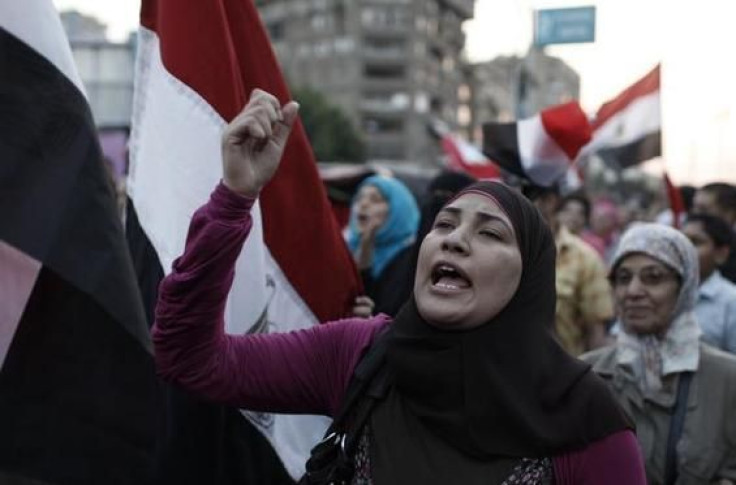Mohamed Morsi Adamant As Oil Price Spikes To $102 Over Fears Of Disruptions In Suez Canal Oil Supply Route

The escalating political crisis in Egypt, after President Mohamed Morsi categorically rejected a military ultimatum to address calls from protesters for his resignation, pushed oil prices up to touch $102 a barrel on Wednesday for the first time since May last year.
Benchmark crude climbed $2.20 to $101.80 a barrel in early morning trade in Asia, Associated Press reported. Brent crude also saw an increase of $1.45 to $105.45 a barrel on the ICE futures exchange in London.
“The turmoil in Egypt has caused the market to inject some premium into oil futures,” Victor Shum, a vice president at IHS Energy Insights, told the BBC.
Although Egypt is not an oil producer, it controls the Suez Canal, which affords Western nations, including the U.S., access to Middle Eastern oil, making the country a key player in controlling the supply of oil worldwide.
However, analysts, who spoke to the BBC, said that the surge in oil prices was temporary, since there is “more than enough crude supply and there is relatively weak demand,” and, said that if the Egypt crisis did not escalate further, prices could drop to $90-$95 a barrel.
The U.S. imported about 40 percent of its oil last year, of which 25 percent came from the Middle East, according to the energy department.
In Egypt, the military has unveiled a roadmap to scrap the constitution, dissolve the Islamist-dominated legislature and set up an interim administration headed by the country’s chief justice -- a plan that is similar to what followed former President Hosni Mubarak’s ouster in 2011.
Army leaders said they did not intend to stage a coup d’état, but its plan involved replacing Morsi, who became president in June last year following a narrow win in the country’s presidential election.
Morsi, who belongs to the Muslim Brotherhood, declared on Tuesday that he would not step down and rejected all “dictates,” while a statement from his office said: “Egypt will not allow itself to be taken backward,” according to AP.
Meanwhile, Mubarak, who is awaiting retrial in a Cairo prison on various charges, including ordering a crackdown on protesters during the 2011 uprising, said Morsi should step down for the sake of Egyptians, Al-Arabiya reported, citing Arabic-language newspaper al-Akhbar al-youm, which quoted a source close to the former president.
Mubarak, who stepped down 18 days after the uprising began on Jan. 25, 2011, said he did so in order to “save lives,” the report added.
© Copyright IBTimes 2024. All rights reserved.












